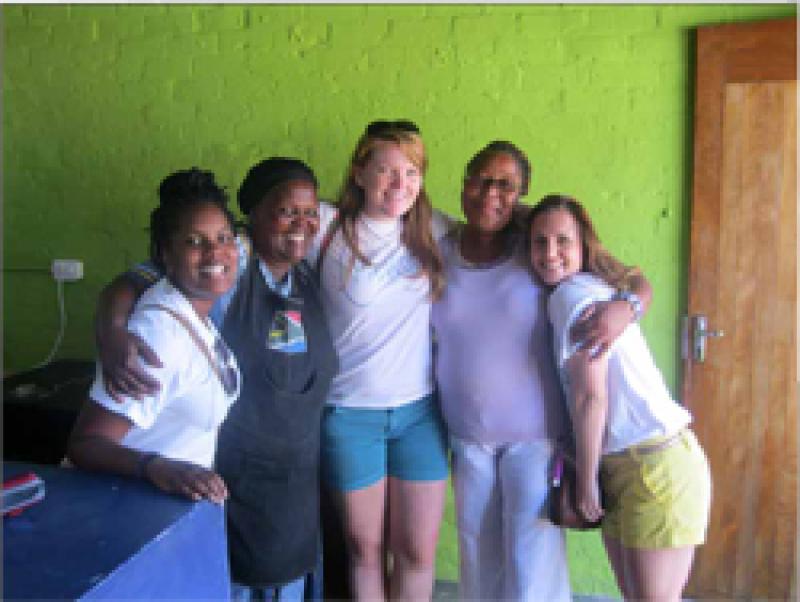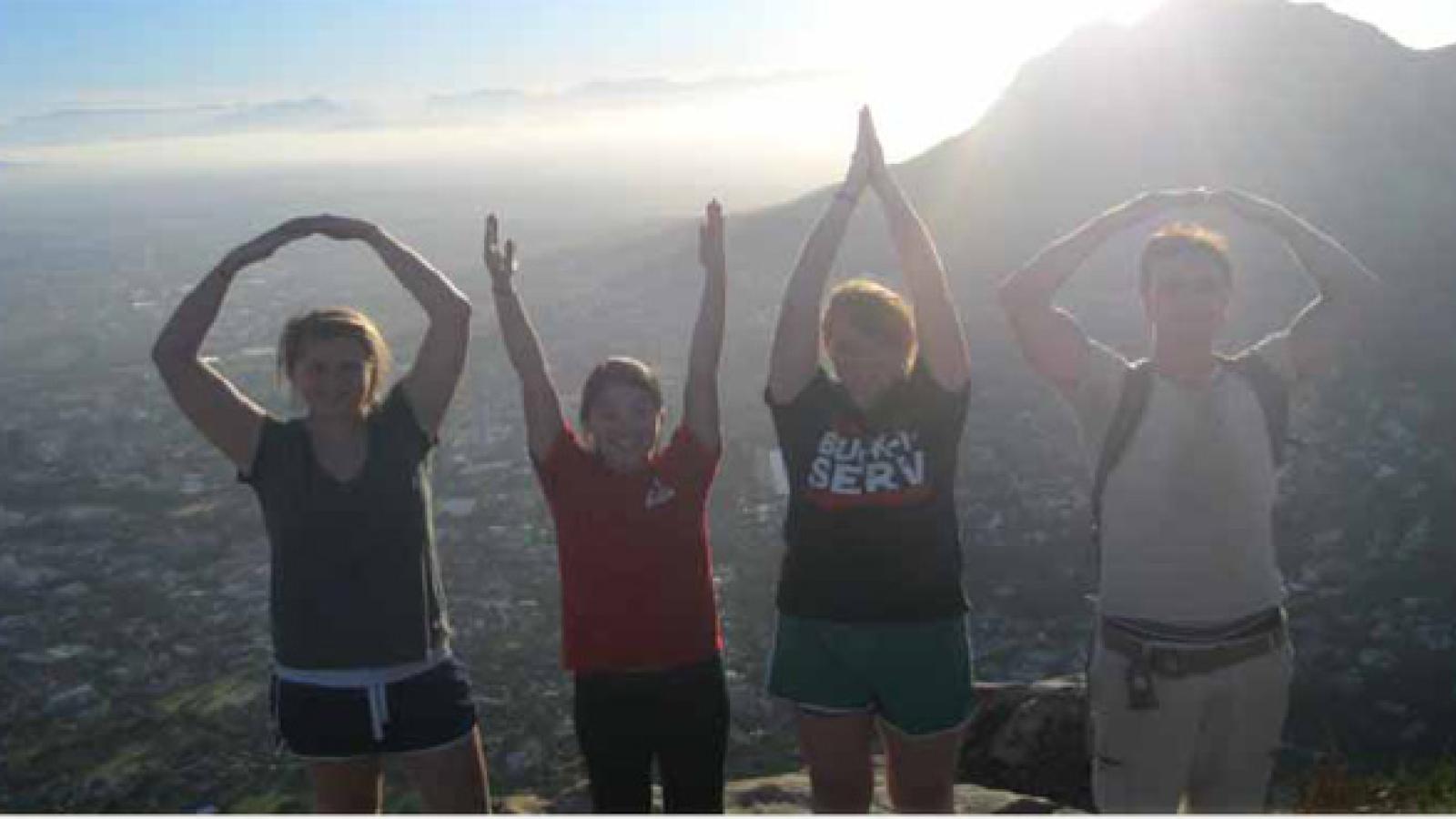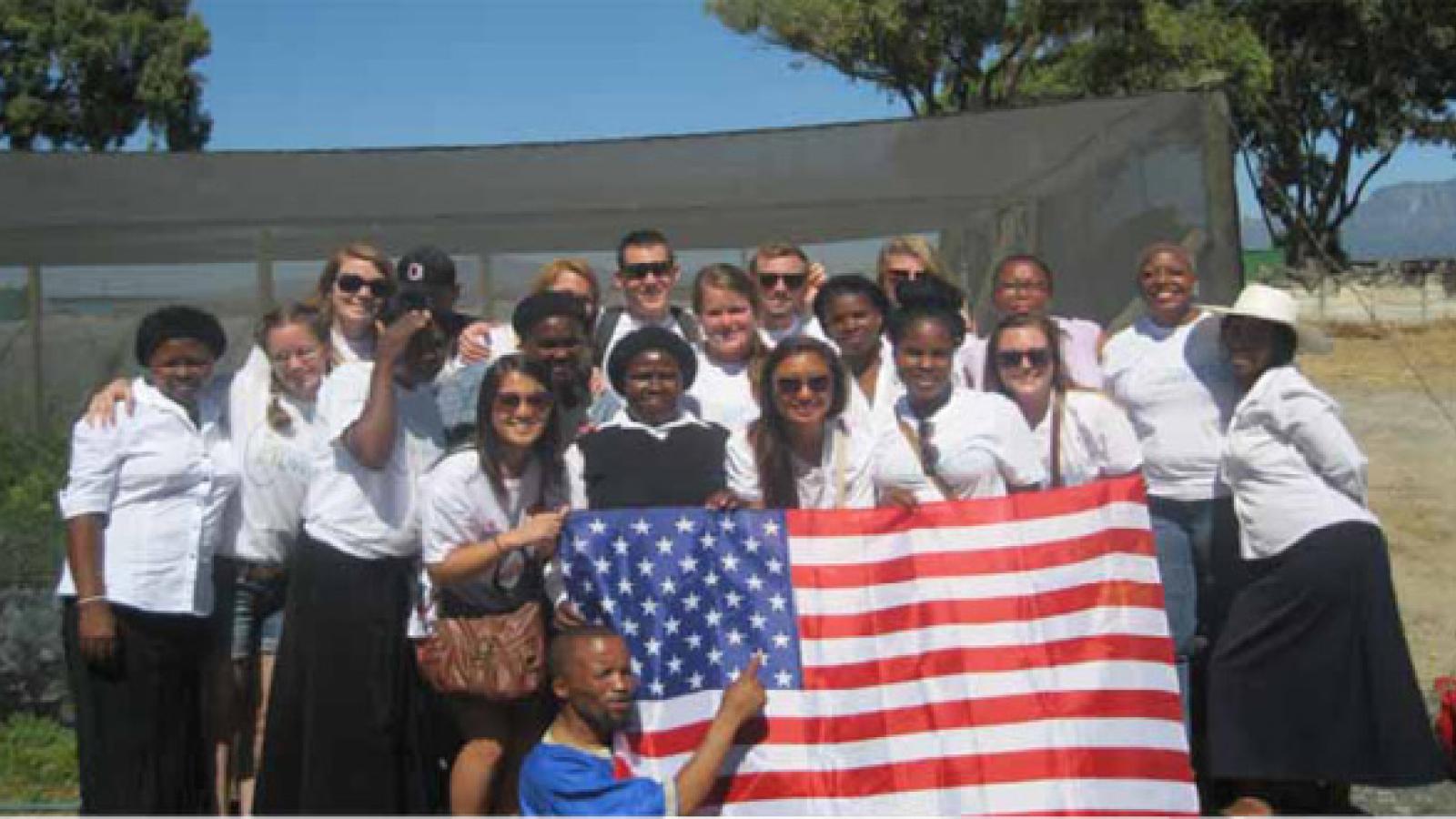Buck-I-SERV, South Africa
Kathryn Hogan graduated in Spring 2011 with degrees in International Relations & Diplomacy and Political Science and a minor in African Studies. She will once again graduate from OSU this Spring 2013 with a Master's Of Public Administration (MPA) in Public Policy & Management. Read about her graduate experience as a Buck‐I‐SERV trip leader!
"'We're actually expanding Buck‐ISERV to include international programs and one will be going to South Africa this December.' I was thrilled when I heard these words come out of the Buck‐I‐SERV Coordinator's mouth. Buck‐I‐SERV is Ohio State University's (OSU) alternative break program for undergraduate students. OSU undergraduate students can participate in 65 trips across the country and abroad to serve at various nonprofit organizations that address a range of issues. Each of these trips typically has a staff member or graduate student accompany the students in their travels to serve as their advisor. As a graduate student at OSU, I had served as an advisor for two trips, one to Washington, DC and one to Los Angeles. I had grown close to the Buck‐I‐SERV coordinator and found myself in her office one day when I noticed a painting from Ghana on her office wall. I shared with her that I had studied abroad in Uganda and Tanzania during my undergraduate years at OSU, and majored in International Relations with a minor in African Studies. She immediately told me of the plans to expand Buck‐I‐SERV's program to include South Africa, and I made it clear that I was interested in advising the trip as a graduate student at OSU.

We served through an organization called ProWorld, which linked us with local social entrepreneurs and nonprofits in the Cape Town area. The first organization we worked with was led by a woman named Pamela. Pamela's daughter lost her life to HIV when she was only 18. As a result, Pamela has led the charge in her township to educate and address HIV. She leads a team of home health workers that volunteer their time to go into the community and help those living with HIV take their medicine, get to the doctor, and eat healthy, nutrient‐dense meals. She believes strongly that her community needs to overcome the stigma of HIV and acknowledge the realities of the disease. She fought a year‐long battle with a local high school principal to offer testing in his high school. He resisted this idea and claimed there was no HIV in his school. After a year she finally got into the school to test students and found nearly a third were positive. She responded accordingly so these students could take the next steps to living healthy lives. She is affecting change by raising awareness and breaking down stigmas. One of her volunteers who is HIV‐positive told me, 'I control my HIV, it does not control me.' This statement is a testament to the empowerment Pamela has brought to her community.
The second organization was with a woman who we affectionately called Mama Rosie. She runs a community garden in her township and harvests the vegetables to feed local school children. She also teaches women in her community how to bead so they can make jewelry and sell it to earn a modest income. Rosie also seeks to educate her community about HIV and how to live a healthy life if one is positive.
Both women leaders inspired the students. On the last day, the students on my trip cried during the goodbyes with both of our organizations. As I watched them say their tearful goodbyes, I couldn't help but see myself in them. I reflected on my first trip to Africa a few years prior and the ways in which it changed me.
Study abroad to Uganda and Tanzania transformed my life. I saw the world through a different lens, learned the perceptions that Americans have of Africa are frequently incorrect, and realized how small my world view was prior to the trip. Students can certainly learn valuable lessons in the classroom, but going beyond offers perspectives and experiences that cannot be produced by a book or a lecture. On the last day of the trip when we were thanking Mama Rosie and her team for hosting us, Dr. J thanked them all by stating, “Students learn some of their greatest lessons outside of the classroom. Thank you all for being members of our faculty at Ohio State University.” This statement illustrates the importance of learning outside of the classroom, outside of Columbus and outside of Ohio.
I chose International Relations as an undergraduate student because I wanted opportunities to learn from 'OSU faculty' abroad. I graduated and went on to pursue a graduate degree in Public Administration, with the hopes of working for a nonprofit that addresses international development after completion of that degree. I was sad to leave International Relations behind; however, my undergraduate degree in International Relations opened doors I never could have imagined. A simple conversation about my love of Africa and my studies as an undergrad took me halfway across the globe to experience it all over again.
When choosing a degree in the International Studies department, you never actually know where it might take you. It might be a study abroad while at OSU, on a Buck‐I‐SERV trip a few years later, or to a new country for a job with a nonprofit or government agency.
There are OSU faculty all over the world waiting to teach you, and a degree in International Relations can serve as the ticket to get you there. I know it did for me."


